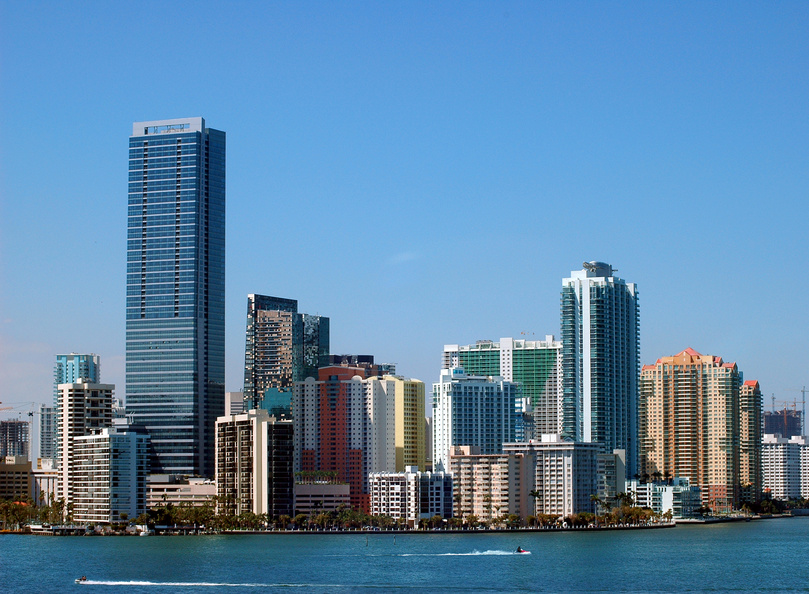
25 Nov Three Strategies to Make an Entrepreneurial City
Urban vibrancy doesn’t only happen through grand projects or planned spaces. It happens through moments like one we recently witnessed on a vacant lot in downtown Louisville, KY. There, in the city’s Bourbon District, food trucks served a crowd milling around the MakerMobile, a tinkering shop on wheels. Inside this trailer, a 3D printer hummed and lasers burned neat letters onto notebooks and bottle openers.
Outside on a small stage, the latest cohort of entrepreneurs in Louisville’s social impact accelerator program, Village Capital, were introduced. Among those listening to the entrepreneurs’ business ideas were dozens of mayors from around the country.
The mayors were in Louisville to attend the second annual Mayors Conference on Entrepreneurship, hosted jointly by the Ewing Marion Kauffman Foundation and my office. The conference brought together the two themes of the moment described above: entrepreneurship, and the growing “maker movement.”
The purpose of the Mayors Conference is to gather city leaders and entrepreneurship experts together to discuss ways to promote startup activity and encourage higher levels of entrepreneurship in their cities. Three themes from this year’s event provide direction for cities in search of strategies to spur growth, economic development and civic dynamism.
1. Facilitate bottom-up innovation and experimentation
Traditional top-down approaches to economic development have dominated much of the public discourse in the past decades. These top-down approaches, which include things like science parks and multi-million-dollar public venture funds, are hard to pull off and use scarce taxpayer dollars. Rather than the government dictating innovation from the top, Louisville and other cities support innovation and experimentation from the bottom-up. Entrepreneurs should be at the center of innovation, not the government.
With this underlying belief in mind, Louisville presented Village Capital to the mayors at the conference so they could witness how this venture accelerator has brought together agriculture and clean-tech businesses from all over the United States to develop their startups. From California to Massachusetts, these new firms gathered in Louisville to make products ranging from autonomous flying drones used in industrial agriculture to home hydroponics units to wireless soil sensors gathering data on soil moisture.
It is important to highlight that while the city supports this initiative, it does not lead it. The role of local government is to support this type of innovation, not try to control it.
2. Leverage your local strengths
What if you could create an app to make your appliances smart, allowing for things such as controlling them from the Internet? You could, for example, turn off your oven from your phone after going to work and forgetting your food in it, or you could get a text when your laundry is done.
What if you could build this for just $19.95?
The mayors visited FirstBuild, a maker space in Louisville, that has made this innovation possible with the creation of Green Bean, a maker module and software development kit compatible with various types of appliances, from dishwashers to refrigerators.
FirstBuild and the partnership that originated it are an example of leveraging local strengths. More particularly, FirstBuild leveraged three key local players: GE Appliances, a large manufacturer headquartered in the city; the Speed School of Engineering at the University of Louisville; and the local maker community.
Each city has its own unique characteristics and strengths. Instead of trying to recreate places like Silicon Valley, Louisville and other cities are building strong entrepreneurial ecosystems by identifying their competitive advantages and leveraging them.
3. Welcome global talent to your city
Walking by Louisville’s river front, you may encounter a sight that initially looks slightly out of place in an American heartland city. In traditional East African fashion, Elizabeth Kizito, a Uganda-born entrepreneur, carries an enormous hand-woven basket of cookies over her head and sells them on the street, as she has been doing for more than 35 years.
When Kizito started selling cookies, her only delivery channel was herself and the basket of cookies on the top of her head. Now, her baked goods are sold at 62 locations in three different states. She became known locally as the Cookie Lady and is now a Louisville celebrity running a thriving business.
On a local scale, Kizito exemplifies the kind of positive impacts immigrant entrepreneurs have in our nation.
Immigrants are one of the key drivers of entrepreneurship in the United States. Immigrants, both first and second generation, have founded more than 40 percent of Fortune 500 companies and are two times more likely than native-born Americans to become entrepreneurs.
We usually think of immigration as a federal policy issue, and to a large extent that is true. But with immigration reform stuck in Washington, cities across the United States are taking the lead in developing local initiatives to welcome and cultivate global talent as a tool to strengthen their economies.
In Louisville, the mayors were introduced to the city’s immigrant entrepreneurship initiatives such as RISE – Refugees and Immigrants Succeeding in Entrepreneurship, a hands-on program offering mentoring and training to immigrant entrepreneurs like Kizito.
RISE serves entrepreneurs from a wide span of backgrounds, and it deeply understands that immigrant entrepreneurs can include anyone, from someone resettled with a dollar in their pocket and no formal education, to an engineer with an elite school’s PhD.
The manual to making an entrepreneurial city is being created in Louisville and cities like it across America. The challenge now is to share experiments and learn from one another. We did that at the Mayors Conference on Entrepreneurship and are continuing the dialogue. We hope you can join us.
Greg Fischer is mayor of Louisville, Ky, and Dane Stanger is vice president of Research and Policy at the Ewing Marion Kauffman Foundation.


Sorry, the comment form is closed at this time.